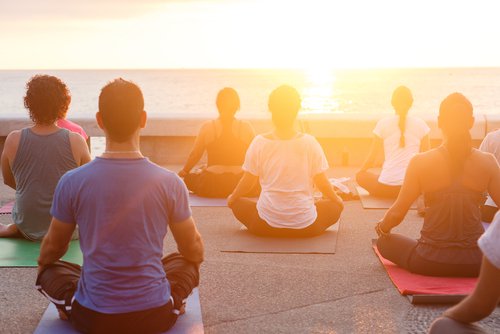

Recovery from addiction isn’t always an easy road. You may be grappling with the occasional negative thoughts, stress or even cravings that could lead to a relapse. However, there is a powerful tool available that can help combat these feelings and emotions while promoting peace, serenity and a feeling of centeredness that can strengthen you on your road to recovery. This tool is meditation, and the wonderful thing is that anyone can practice it at any time.
Meditation can be a valuable complementary treatment during addiction recovery because it can provide emotional, mental and physical health benefits.
Emotional: Practicing meditation gives you the time and space you need to feel grounded and centered. It’s a mindfulness technique, which allows you to take your focus away from negative emotions and better regulate your mood. Studies have found meditation has the potential to reduce feelings of anxiety and depression.
Mental: Proponents of meditation have long said the practice can help with cognitive functions such as memory, concentration and learning. A study out of Harvard University backs those claims—it found that meditation can actually increase brain density in the areas controlling those functions. The same report also stated that the area of the brain that governs anxiety and fear decreased in volume, which can contribute to meditation’s stress-reducing power.
When it comes to addiction, meditation holds great promise for helping to curb cravings; for instance, a 2011 study found meditation helped people who were trying to quit smoking abstain from cigarettes.
Physical: Meditation can help you feel good and healthy, which is important as you travel the path of recovery. Benefits of meditation may include better heart health because stress levels are lower; a stronger immune system to fight off colds, viruses and inflammation; and improved quality and duration of sleep, which can have a wide-ranging effect on your health and well-being.
Meditation is easy to incorporate as part of your daily routine, and it can also be used in moments of stress or anxiety. There are several different meditation techniques you can try to see which one suits you best; if you have a therapist you see as part of your recovery, he or she may be able to suggest some mindfulness strategies as well. Some of the more common meditation techniques can include the following:
Guided meditation (listening to someone else’s voice; there are many apps available that offer this type of meditation)
Concentration (focusing on a fixed point for a certain amount of time)
Mindfulness (following and observing the pattern of your thoughts without judgement)
Mantra (using a word or short phrase and repeating it throughout the meditation session)
Deep breathing (taking cleansing, rhythmic breaths that promote a sense of relaxation)
Body scan or progressive muscle relaxation (visualizing each part of your body from head to toe to find sources of tension; in progressive muscle relaxation, you also tense and release muscles to ease pain)
Visualization (picturing a setting that brings peace; can also be used as part of guided meditation)
Movement meditation (using slow, rhythmic movement and deep breathing to achieve clarity and focus; forms can include tai chi, yoga and even walking)
Comments
Read Elephant’s Best Articles of the Week here.
Readers voted with your hearts, comments, views, and shares:
Click here to see which Writers & Issues Won.








